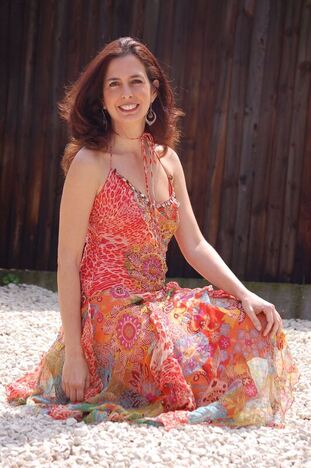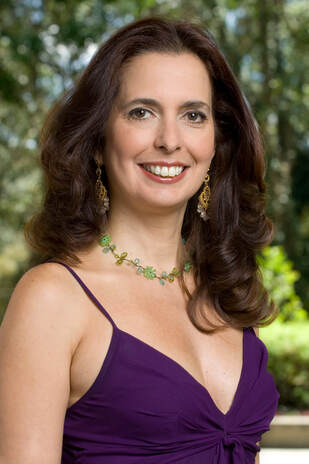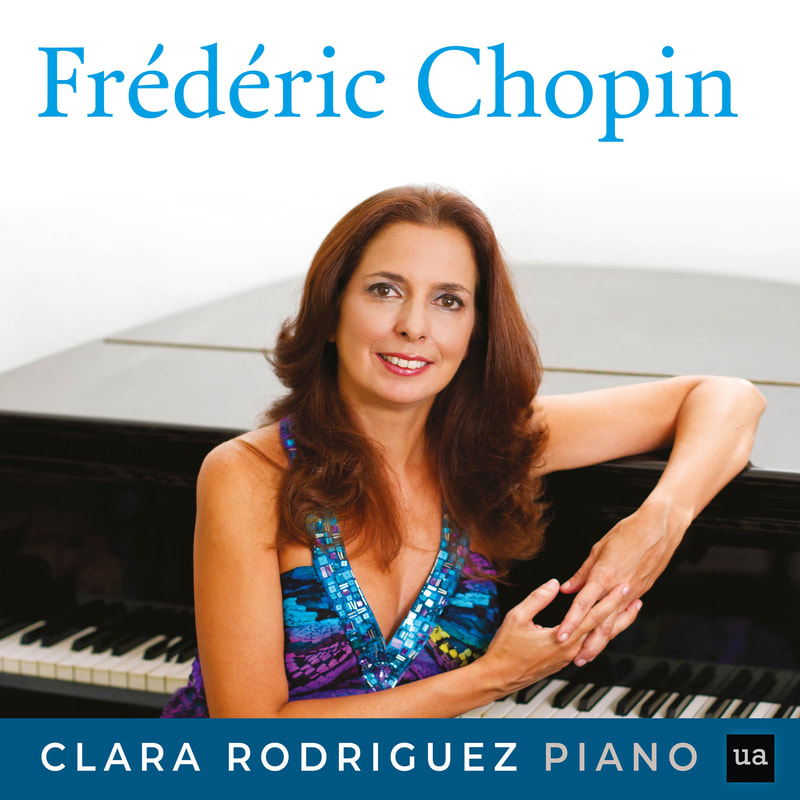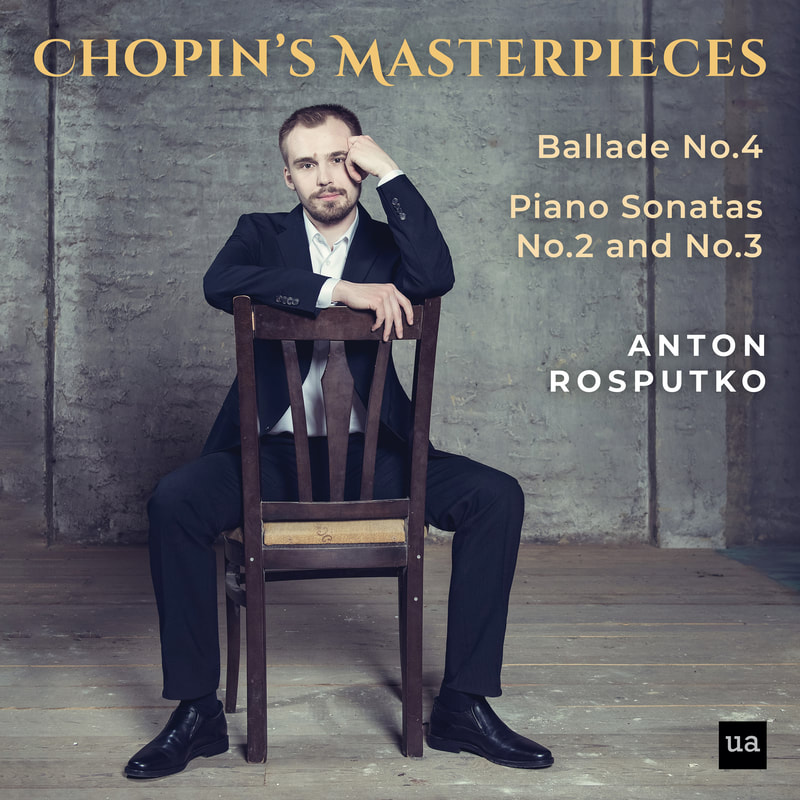| The Nimbus Records Group and Ulysses Arts are pleased to announce a press and publicity partnership, starting in March 2022. James Ross, Ulysses Arts' director, comments: 'I have been listening to recordings made by Nimbus, Lyrita and Prima Voce for many years with pleasure and admiration. It is a pleasure for Ulysses Arts to be working alongside Nimbus and its partner labels to maximise the visibility and appreciation of the imaginative recordings and meticulous work presented in its albums.' |
NIMBUS RECORDS AND ULYSSES ARTS ANNOUCE PRESS AND COMMUNICATIONS PARTNERSHIP FROM MARCH 20224/3/2022 Ulysses Arts will provide electronic press kits for Nimbus and Lyrita recordings, alongside press releases on our website.
0 Comments
'The thought has always amazed me: my teacher's teacher was a pupil of a Chopin pupil! George Mathias - Chopin's student - taught Isidor Phillip, who in turn was Phyllis Sellick's teacher in Paris. My connection with Chopin's music is deep: his unique emotional span and his exceptional way of writing for the piano is unavoidable for us pianists. I could live my life playing and teaching his music: in reality, that is what I have done up to now - with the exception of the rest of the repertoire that you can listen to on my other recordings or concerts, of course.
The works I have had the privilege of recording for this Ulysses Arts Chopin album include the Piano Sonata Op. 58 No. 3 in B Minor of 1844, composed during a period that was particularly dramatic in Chopin's life. It included the death of his friend Jan Matusysnsky of tuberculosis, tension in his relationship and eventual separation from George Sand, and the moral and physical decline of his own health. The pieces on this album represent great challenges in the pianist’s repertoire: all of them are great intellectual and emotional journeys, and the result of a long process of distillation. I would like to thank the unconditional support given to me by Nelly and Bertrand Soux from Caracas, to fulfi l the dream of any pianist respect the performance and recording of these masterpieces by Frederic Chopin.' 
The playing of Venezuelan pianist Clara Rodriguez stands out for the sheer beauty of her tone
production, high expressiveness and considerable digital clarity combined with stylistic acumen. She has built an enviable international reputation for her innovative programme planning, juxtaposing standard repertoire with works by South American composers and has premièred over thirty works. At sixteen she took part in a competition judged by Michael Gough Matthews and Barbara Boissard, directors of The Royal College of Music: she was awarded the Teresa Carreño Scholarship which enabled her to study there with Phyllis Sellick, graduating from the Performers’ Course and Postgraduate course. The recipient of many prizes and awards such as the Scarlatti Prize, Mozart Prize and Percy Buck Award, she was also a finalist in the Chappell Prize. With the Royal College of Music orchestras and the Repertoire Philharmonic Orchestra she performed concertos by Mozart, de Falla, Ravel and Gershwin. In Caracas, at seventeen, she made her debut playing Mozart’s Piano Concerto K.595 with the Simón Bolívar Orchestra conducted by José Antonio Abreu. Pianist Guiomar Narváez (Venezuela) was Clara Rodriguez’s first piano teacher in Caracas. She has also received tuition from Paul Badura-Skoda (Austria), Niel Immelman (U.K.), Irina Zaritskaya (Russia) and Regina Smendzianka (Poland). Clara Rodriguez’s career as a solo pianist has taken her to perform in Belgium, Denmark, Egypt, Finland, France, India, Italy, Spain, Syria, Tunisia, the USA, and Venezuela. In London, she is a popular performer who regularly plays in recitals and as soloist with orchestra, including at the Southbank Centre, Wigmore Hall, Barbican Centre, St. Martin-in-the-Fields, St. James’s Piccadilly, St John’s Smith Square, Leighton House and Bolívar Hall. In Venezuela she regularly plays concertos with the Simón Bolivar Orchestra, the Filarmónica Nacional and the Orquesta Municipal de Caracas. As an invitee for the Grandes Virtuosos del Piano, she played Reynaldo Hahn’s Piano Concerto; other participants included Paul Badura- Skoda and Chick Corea. Clara Rodriguez has played concerts with British clarinettist Michael Collins, The Orchestra of the Age of the Enlightenment and with Stephen Bryant, concertmaster of the BBC Symphony Orchestra. Clara Rodriguez is often interviewed by the BBC; her recordings feature regularly on BBC radio and networks worldwide. She has founded and directed three music festivals; has devised words and music programmes and is also a piano music editor. As a teacher she is a professor at the junior department of The Royal College of Music. As an artist in The Dominic Seligman Agency, Clara Rodriguez has played a series of recitals at Arundells, home of former British Prime Minister, Sir Edward Heath. In 2015 Clara Rodriguez was awarded the “Classical Music Act” LUKAS Prize. She has been made an honorary member of the Chelsea Arts Club and named “Woman of the Year” by the main newspapers and magazines of Venezuela. Clara Rodriguez’s catalogue of six recording with Nimbus Alliance Records include the Piano Music of Teresa Carreño, Ernesto Lecuona, Moisés Moleiro, Federico Ruiz plus the albums ‘Venezuela’ and ‘Americas Without Frontiers’. Many composers have written music especially for her, including Federico Ruiz’s Piano Concerto No.2, which she has played in Caracas and London.
'El período en que fueron compuestas las obras de éste CD fue dramático en la vida de Chopin; la pérdida de su amigo Jan Matusysnky por tuberculosis, la tensión y eventual ruptura de su relación con George Sand así como el declive moral que su propia enfermedad le proporcionaba. Hoy se consideran éstas obras como la cima del repertorio pianístico y aunque Chopin exploró a lo largo de su vida las posibilidades técnicas y expresivas del piano, centrando su genio creativo en ese sólo instrumento, es imposible pensar que sus otras composiciones, inclusive las tempranas, son menos importantes. Creó así un riquísimo universo de incomparable diversidad de sonidos y emociones a través de toda su creación. ¿Por qué grabar Chopin? porque sin ninguna duda, Chopin es el alma del piano y ha sabido meterse en el alma de los pianístas con sus infi nitas difi cultades pero de reultados de elevadísima factura verdaderamente artística. Con mi mas grande agradecidecimiento a Nelly y Bertrand Soux por haberme brindado el apoyo y el estímulo para que llevase a cabo éste trabajo.' 
Clara Rodríguez se ha ganado una reputación internacional envidiable por su innovadora planificación de programas de concierto en donde, yuxtapone el repertorio clásico europeo y norteamericano con obras de compositores sudamericanos. La BBC la ha descrito como “La campeona de la música venezolana en el mundo” y se le considera constantemente como Embajadora de la música de Latinoamérica. Sus interpretaciones destacan por su expresividad, sensibilidad, entusiasmo, visión y por mostrar una considerable claridad digital y perspicacia estilística. A los dieciséis años estaba en su séptimo año de estudios de piano con la Profesora Guiomar Narváez en el Conservatorio Juan José Landaeta de Caracas cuando participó en un concurso nacional cuyo jurado estaba conformado por los directores del Royal College of Music de Londres, Michael Gough Matthews y Barbara Boissard quienes le otorgaron la “Beca Teresa Carreño” del CONAC la cual le permitió viajar a Londres para estudiar en el Royal College of Music con la pianista Phyllis Sellick graduándose del Curso de Intérpretes y un Postgrado. Mientras estuvo en el RCM, recibió numerosos premios y reconocimientos tales como el Premio Scarlatti, el Premio Mozart y el Premio Percy Buck, como finalista en el Premio Chappell; Otras distinciones en concursos desembocaron en invitaciones a ser solista con orquestas del Royal College Of Music en los que interpretó a Mozart, de Falla, Ravel y Gershwin. Clara Rodríguez también ha estudiado con Niel Immelman (Reino Unido) Paul Badura-Skoda (Austria) e Irina Zaritskaya (Russia). En Caracas, a los diecisiete años debutó interpretando el Concierto para piano K595 No 27 de Mozart con la Orquesta Simón Bolívar bajo la batuta de José Antonio Abreu; desde entonces, la carrera de Clara Rodríguez como pianista solista la ha llevado a realizar giras por Bélgica, Dinamarca, Egipto, Finlandia, Francia, India, Italia, España, Siria, Túnez, Estados Unidos y Venezuela. En Londres, es una artista muy apreciada que toca con gran éxito en el Southbank Centre, Wigmore Hall, Barbican Centre, Saint Martin-in-the-Fields, Leighton House, Bolívar Hall, St. James’s Piccadilly St. John’s Smith Square. Clara Rodriguez toca asiduamente conciertos con la Orquesta Simón Bolívar, la Filarmónica nacional y la orquesta Municipal de Caracas.Como invitada al Festival de Grandes Pianistas de Caracas, tocó el Concierto en Mi mayor de Reynaldo Hahn; Chick Corea y Paul Badura-Skoda también participaron en dicho festival. Clara Rodríguez se ha presentado junto a la Orchestra of the Age of the Enlightenment y el clarinetista Michael Collins, quien también la ha dirigido en Conciertos de Mozart. Clara Rodríguez ha también tocado conciertos junto a el violinista Stephen Bryant, primer violín de la Orquesta de la BBC. Clara Rodríguez ha tocado una serie de diez recitales en la casa del ex-primer ministro británico, Sir Edward Heath, en Salisbury. Ha sido galardonada con el premio LUKAS del Reino Unido como “Artista Clásico del año” en el 2015. También ha sido nombrada miembro honorario del Chelsea Arts Club de Londres. La obra de Clara Rodríguez con relación a la música venezolana se extiende al estreno internacional de un número considerable de composiciones de contemporáneos, incluyendo el Segundo Concierto para Piano y Orquesta de Federico Ruiz -dedicado a Clara- así como la grabación de cientos de piezas en CDs así como su publicación y edición en varias casas importantes del Reino Unido. Sus grabaciones comerciales en sellos como ASV, Meridian y Universal han recibido un gran reconocimiento de la crítica y son escuchados en las estaciones de radio que van de la BBC, toda Europa y América. Actualmente trabaja con Nimbus Records en cuyo catálogo se encuentran seis de sus álbumes cuyos títulos comprenden la música para piano de Teresa Carreño, Ernesto Lecuona, Moisés Moleiro, Federico Ruiz, el álbum “Venezuela” que contiene una colección de danzas de 18 compositores y su más reciente CD “Americas Without Frontiers” el cual presenta música de países como Haití, Cuba, Colombia, Estados Unidos, Venezuela, Argentina y Brasil. Otros CDs grandemente apreciados por el público y la crítica incluyen “El Cuarteto con Clara Rodríguez” y “Chopin, late Works”. Clara Rodríguez es profesora del Departamento Juvenil del Royal College of Music.
Album Details:
Piano Sonata Op. 58 No. 3 Mazurka Op. 63 No. 2 Barcarolle Op. 60 Nocturne Op. 62 No. 1 Mazurka Op. 24 No. 4 Ballade Op. 52 No. 4 Polonaise-Fantaisie Op. 61
Producer: Simon Weir; Engineer: Morgan Roberts
Digital release artwork and booklet design: Hannah Whale - Fruition Creative Concepts
Ulysses Arts is delighted to release Latvian pianist Anton Rosputko's debut album, Chopin's Masterpieces, on 30 April 2021. The album features three of Chopin's greatest solo piano works - his Ballade No. 4, and Sonatas No. 2 and No. 3.
Anton describes his thoughts behind the album: ‘If somebody asked me about the main challenge during recording and playing Chopin’s 4th Ballade and the 2nd and 3rd Piano Sonatas, my answer without hesitation would be: to offer something new in this music, so long been an inseparable part of the culture of classical music lovers for generations, while staying sincere and far from artificial decisions foreign to my genuine view of the works. These pieces are a seduction for a pianist, a desirable professional and artistic challenge that cannot be resisted, even if there are already hundreds if not thousands recordings of the same music. We all know that there are dozens of piano compositions that have received so many performances that often we want to restrain ourselves from listening to them. The 2nd and the 3rd Chopin’s Piano Sonatas appear frequently in recitals (the 2nd especially, not to mention outside-of-concert performances of the 3rd movement, the Funeral March), and the 4th Ballade is the most played of the Ballades. However for me the beauty and possibilities of these works are never exhausted, whether listening or playing them. I have been contemplating the reason: a possible answer lies in Chopin’s raw emotions – as raw and true as can be, and the absence of “concert stage effects” – emotions which already evoke so much trust in a listener. This is especially relevant for the 4th Ballade. The introversion of this music remains shocking despite its open outbursts of emotion that culminate in the desperate coda. Chopin composed several works that were meant to provide a charming and brilliant cherry on the top of his concert programmes, with virtuosity proclaimed openly by the use of term ‘Brilliante’ in their titles. In the works recorded here however, virtuosity is truly nothing but the server of a function – a speed necessary for a certain expression, as in the apocalyptic kaleidoscope of the 4th Ballade’s coda, or the whirling runs in 2nd Sonata’s ‘Presto’. The 3rd Sonata’s Finale is close to Chopin’s concert rondos, but far from their intent to please the audience merely with entertainment, and equally far from declaring self-satisfaction, even in its joyfully glowing B Major conclusion. These works are true masterpieces, on which I have tried to work with sustained artistic attention and respect towards the music itself, and I am delighted to present my personal rendition of them to you.’ Anton Rosputko About Anton Rosputko Anton Rosputko was born in Jūrmala, Latvia, in 1993. Interntional awards include 1st Prize, Gradus ad Parnassum Competition, Kaunas, Lithuania; Third Open Russian Competition in Kaliningrad, 2nd Prize, Virtuosi per musica di pianoforte, Ústí nad Labem (Czech Republic), 3rd Prize; Schumer Prize in Enschede (Netherlands), 2nd Prize (2007) and 1st Prize (2010) at the Jūrmala International Competition. His main mentors have been Tatyana Pavlyuchenko, Jānis Maļeckis, Pavel Gililov and Boris Petrushansky. Anton Rosputko received a Latvian Ministry of Culture prize in 2005, 2006 and 2008, as well as a Latvian 'Recognition Award' in 2009. In 2012 he received the Hübel Foundation Scholarship. He is a prize-winner of the Mozarteum International Summer Academy (Salzburg, Austria, 2009), including performing in the Salzburg Festival. Anton has also taken part in masterclasses with Armen Babakhanian, Arkadiy Sevidov, Pavel Gililov, Sergej Maltsev, Anatol Ugorski, Peter Tacács, Jacques Rouvier, Matti Raekallio, Siegfried Mauser, Wolfgang Manz, Boris Petrushansky and Denis Proshayev. Anton Rosputko was a participant of the Kaunas Festival in Lithuania in 2006 and 2010. As a soloist with orchestra he has performed with the Latvian National Symphony Orchestra and Normunds Vaicis, Sinfonia Concertante Orchestra with Andris Vecumnieks, Kaunas City Orchestra and Modestas Pitrenas, Liepāja Symphony, and Amber Sound Orchestra with Tadeusz Wojciechowski. Anton Rosputko has performed widely in Latvia, Lithuania, Russia, Czech Republic, Germany, Austria, Italy, Liechtenstein, Switzerland and the Netherlands. Venues include the Great Hall and the Vienna Hall of the Mozarteum Foundation, Solitär Hall of the Mozarteum University, Great Concert Hall of the University of Music and Performing Arts Munich, Great Hall of the University of Music and Felix Mendelssohn Bartholdy Theatre Leipzig, Concert Hall of Kaliningrad Philharmoniс Society, Great Hall of Kaunas State Philharmonic Society; the Small Guild, Riga House of Moscow, Great Hall of Latvian National Opera and Dzintari Concert Hall. www.antonrosputko.com
Ulysses Arts freut sich, das Debütalbum von Anton Rosputko, “Chopin's Masterpieces“, am Freitag, 30. April, zu veröffentlichen. Anton beschreibt sein Album:
„Wenn mich jemand über die Hauptherausforderung beim Aufnehmen und Spielen von Chopins 4.Ballade und der 2. und 3.Sonate fragen würde, wäre meine unverzügliche Antwort so: etwas neues in dieser Musik anbieten, die so lange ein fester Teil der Kultur von mehreren Generationen der Liebhaber von der klassischen Musik gewesen ist, und dabei ehrlich und weit von künstlichen Entscheidungen bleiben, die meiner natürlichen Beziehung zu diesen Werken fremd sind. Diese Werke sind eine Verführung für Pianisten, eine gewünschte professionelle und künstlerische Herausforderung, der man nicht widerstehen kann, auch wenn es schon Hunderte, wenn nicht Tausende Aufnahmen derselben Musik gibt. Wir wissen alle, dass es Dutzende von Klavierkompositionen gibt, die so viele Aufführungen erlebt haben, dass wir oft uns davon distanzieren wollen, sie zu hören. Die 2. und die 3. Sonaten Chopins erscheinen in Solokonzerten häufig (besonders die 2., ganz zu schweigen von nicht-Konzertaufführungen des 3.Satzes, „Marche funèbre”), und die 4.Ballade ist von allen die am meisten gespielte. Jedoch sind für mich die Schönheit und das Potenzial dieser Werke nie erschöpft, egal, ob ich sie höre oder spiele. Ich habe über Ursachen nachgedacht: eine mögliche Antwort liegt in Chopins rohen Emotionen – so roh und wahrhaft wie es sein kann, ohne „Konzertbühneneffekte“ – Emotionen, die so viel Vertrauen beim Zuhörer hervorrufen. Das ist besonders für die 4.Ballade relevant. Diese Musik ist unglaublich introvertiert, auch wenn sie ab und zu emotionelle Aufschwünge bekommt, die in der verzweifelten Coda ihren Höhepunkt haben. Chopin komponierte einige Werke, die dafür gedacht waren, ein charmantes und brillantes Sahnehäubschen für seine Konzertprogramme zu schaffen, mit der Virtuosität, die öffentlich mit dem Begriff „Brilliante“ in ihren Titeln angekündigt wurde. Jedoch macht in den hier aufgenommenen Werken Virtuosität wirklich nichts anderes als eine Funktion – die für bestimmten Ausdruck notwendige Geschwindigkeit, wie im apokalyptischen Kaleidoskop der Coda in der 4.Ballade, oder in den wirbelnden Läufen im „Presto“ der 2.Sonate. Das Finale der 3.Sonate ist Сhopins Konzertrondos nahe, aber weit von ihrem Ziel,, das Publikum lediglich mit Unterhaltung zu befriedigen, und genauso weit davon, Selbstbewusstsein zu erklären, sogar in seinem froh glänzenden Schlussteil im H-Dur. Diese Stücke sind echte Meisterwerke, während der Arbeit an welchen ich versuchte, mit ständiger künstlerischen Aufmerksamkeit und Respekt gegenüber der Musik selbst zu bleiben, und ich freue mich, meine persönliche Interpretation von ihnen für Sie zu präsentieren.”
|
UA Press Centre
New recordings, press releases, media resources, music industry comment and more from Ulysses Arts. Archives
June 2024
Categories
All
|




